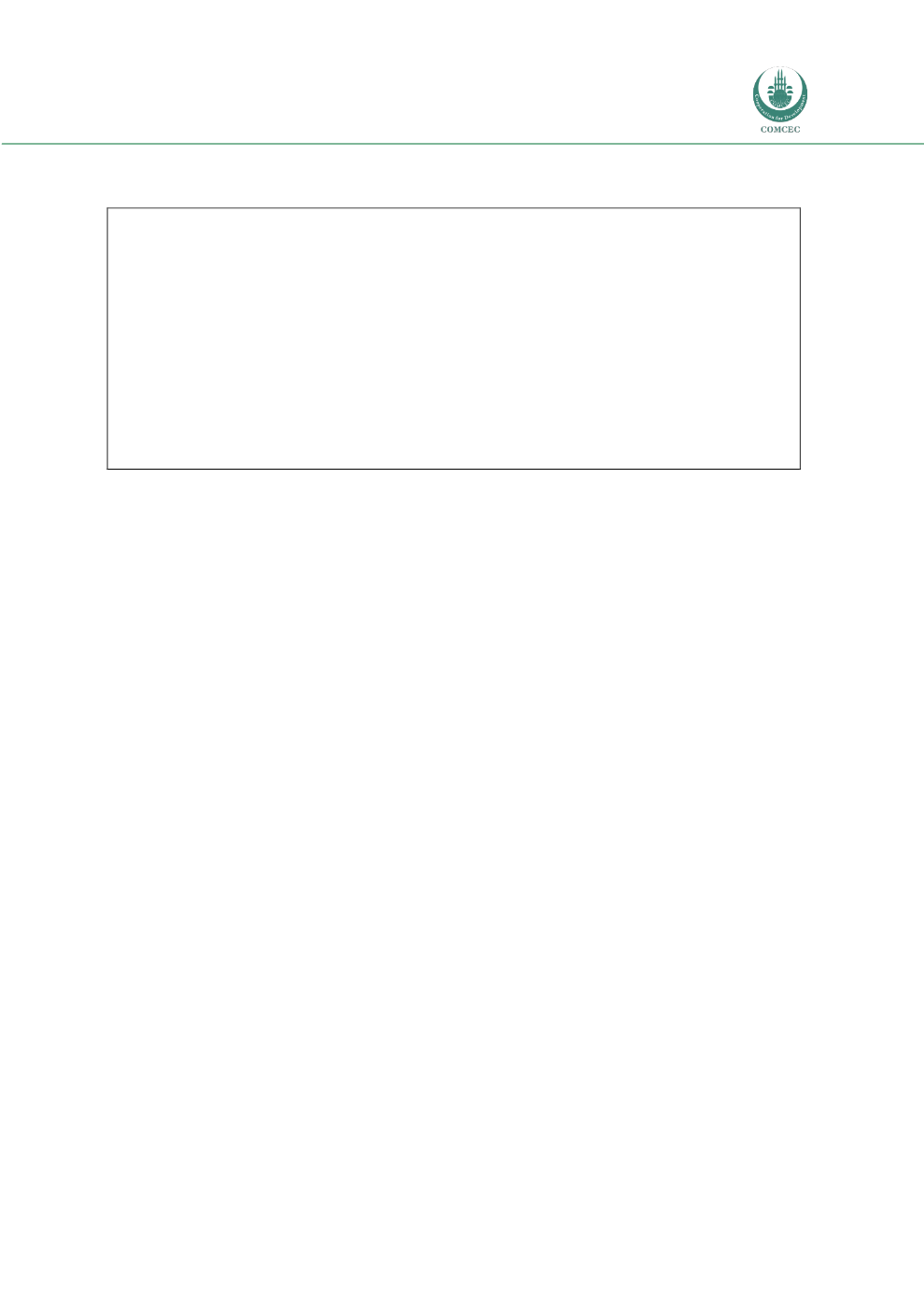

Retail Payment Systems
In the OIC Member Countries
69
4.5 Nigeria
Highlights:
•
In most of sub-Saharan Africa, only a small percentage of upper-income households enjoy the
convenience of card-based, online, and mobile banking and payments, while most consumers
still pay with cash. However, Visa has rolled out mobile payment options in several sub-
Saharan Countries.
•
The Regulatory Framework for Mobile Payment Systems in Nigeria, issued by the Central
Bank of Nigeria in 2009, not only promotes but also provides rules governing the operation
of mobile payment services in Nigeria.
•
Several initiatives have been introduced by The Central Bank of Nigeria (CBN) as part of
efforts to implement a Payment System Vision (PSV) 2020 strategy. PSV 2020 will help the
country to meet world-class standards as indicated in the principles for financial market
infrastructure and trigger rapid transformation development in the financial market.
Introduction
Nigeria is a large and growing country with a population of over 177 million and population
growth rate of 2.47% as of 2014. Real GDP has grown at between 6 and 7% since 2007, with
nominal and PPP GDP at $242bn and over $400bn respectively (CBN Annual Report, 2011). In
2012, real GDP growth rate was 6.5% and real and PPP GDP rose to $261.5bn and $450.5bn
respectively (CBN, 2013). Foreign reserves are now in excess of $45bn and macroeconomic
conditions are generally stable. However, social conditions are less than ideal—the dollar/day
poverty stands at 62.5%; life expectancy a mere 54 years and unemployment close to 24%.
Private consumption expenditure has however grown since 1999, though the growth rate is
now declining.
General Banking and Payment Landscape
Commercial banking pre-dates central banking and has laid the foundation of the Nigerian
financial system as far back as the late nineteenth century. The first commercial bank in
Nigeria was the African Banking Corporation, which opened its first branch in Lagos in 1892.
The bank experienced some initial difficulties and eventually decided to transfer its interest to
Elder Dempster and Co. in 1893. This led to the formation of a new bank known as the British
Bank of West Africa (BBWA) in 1893, which is today known as the First Bank Nigeria Plc
Another bank known as the Barclays Bank DCO (Dominion, Colonial and Overseas) opened its
first branch in Lagos in 1917. This bank is known today in Nigeria as the Union Bank Nigeria
Plc. British and French Bank, now called the United Bank for Africa Plc was established in 1949
making it the third expatriate bank to dominate early Nigeria’s commercial banking.

















